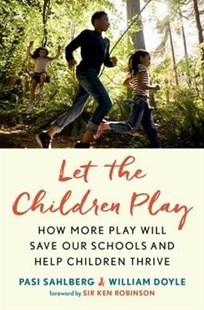

Pasi Sahlberg
A Finnish educator, author and scholar Pasi Sahlberg has worked as a schoolteacher, teacher educator, researcher and policy advisor in Finland and has studied education systems and policies around the world. In his long career in education he has served the World Bank in Washington, DC, the European Commission in Torino, Italy, and the OECD as an education expert. He is an advisor to several governments about education and chairs the Open Society Foundation’s global education advisory board. His recent books include “Finnish Lessons 2.0: What can the world learn from educational change in Finland” (2015) and “FinnishED Leadership: Four Big, Inexpensive Ideas to Transform Education” (2018). His new book with William Doyle is “Let the Children Play: Why More Play Will Save Our Schools and Help Children Thrive” (2019).
His professional honours and awards include the 2012 Education Award in Finland, the 2013 Grawemeyer Award in the United States, the 2014 Robert Owen Award in Scotland, 2016 Lego Award in Denmark, and 2017 Rockefeller Foundation Bellagio Residency. He is a former Director General of CIMO (Centre for International Mobility and Cooperation) at the Finland’s Ministry of Education and Culture in Helsinki and visiting Professor of Practice at Harvard University’s Graduate School of Education. Pasi is Professor of Education Policy at the Gonski Institute for Education, University of New South Wales in Sydney. More on his website: pasisahlberg.com and Twitter: @pasi_sahlberg.
Building back better for every child
The ongoing global health crisis has disrupted many aspects of our lives. It is also changing the way we think about early childhood education. This presentation suggests that we now need a new perspective to early childhood education that is broader and more inclusive than what we have had before. This is necessary when we are helping all children to restoring their social, emotional and physical wellbeing, and by doing so, readiness to learn. Early childhood education should be a basic human right for every child, and it needs to be designed based on diversity of individual personalities and children’s own interests rather than a standardised one-size-fit-all service delivery.

Let the Children Play:
Why More Play Will Save Our Schools and Help Children Thrive
Play is how children explore, discover, fail, succeed, socialize, and flourish. It is a fundamental element of the human condition. It's the key to giving schoolchildren skills they need to succeed--skills like creativity, innovation, teamwork, focus, resilience, expressiveness, empathy, concentration, and executive function. Expert organizations such as the American Academy of Pediatrics, the National Academy of Sciences, and the Centers for Disease Control agree that play and physical activity are critical foundations of childhood, academics, and future skills--yet politicians are destroying play in childhood education and replacing it with standardization, stress, and forcible physical restraint, which are which are damaging to learning and corrosive to society.